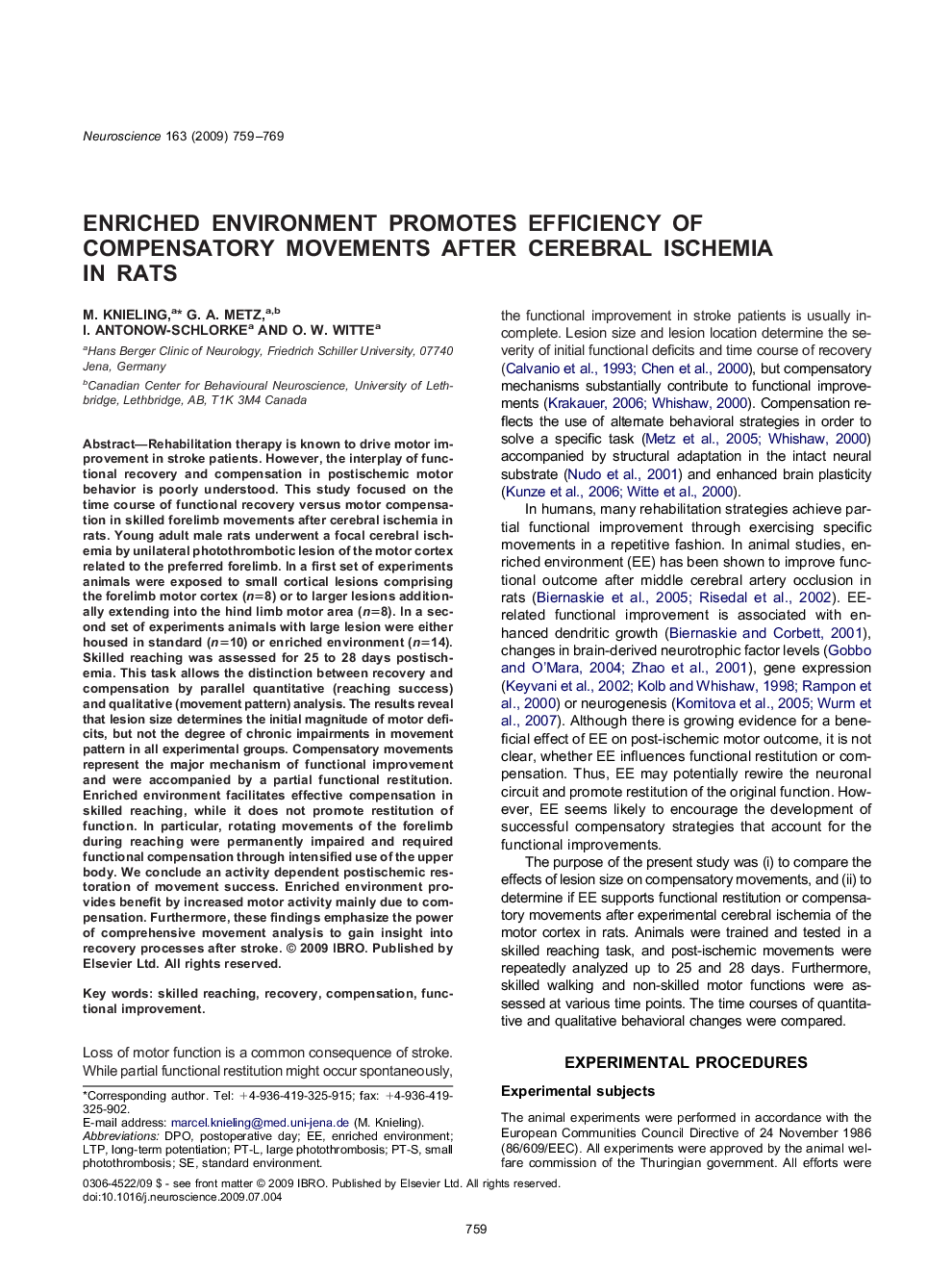| Article ID | Journal | Published Year | Pages | File Type |
|---|---|---|---|---|
| 4340053 | Neuroscience | 2009 | 11 Pages |
Rehabilitation therapy is known to drive motor improvement in stroke patients. However, the interplay of functional recovery and compensation in postischemic motor behavior is poorly understood. This study focused on the time course of functional recovery versus motor compensation in skilled forelimb movements after cerebral ischemia in rats. Young adult male rats underwent a focal cerebral ischemia by unilateral photothrombotic lesion of the motor cortex related to the preferred forelimb. In a first set of experiments animals were exposed to small cortical lesions comprising the forelimb motor cortex (n=8) or to larger lesions additionally extending into the hind limb motor area (n=8). In a second set of experiments animals with large lesion were either housed in standard (n=10) or enriched environment (n=14). Skilled reaching was assessed for 25 to 28 days postischemia. This task allows the distinction between recovery and compensation by parallel quantitative (reaching success) and qualitative (movement pattern) analysis. The results reveal that lesion size determines the initial magnitude of motor deficits, but not the degree of chronic impairments in movement pattern in all experimental groups. Compensatory movements represent the major mechanism of functional improvement and were accompanied by a partial functional restitution. Enriched environment facilitates effective compensation in skilled reaching, while it does not promote restitution of function. In particular, rotating movements of the forelimb during reaching were permanently impaired and required functional compensation through intensified use of the upper body. We conclude an activity dependent postischemic restoration of movement success. Enriched environment provides benefit by increased motor activity mainly due to compensation. Furthermore, these findings emphasize the power of comprehensive movement analysis to gain insight into recovery processes after stroke.
